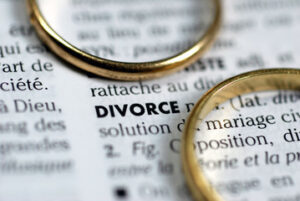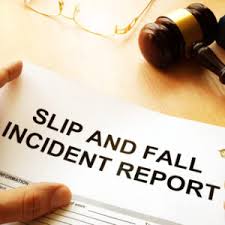Many people have difficulty reaching the decision to get a divorce, even when it’s the right thing to do. It represents a huge loss. Some people consider divorce a personal failing, though in fact it’s a positive step in many situations. Anyone considering divorce is right to take the time necessary to make sure it is the proper step for you to take and to weigh its impact on any children of the marriage.
There are telltale signs that it’s time for a divorce and some steps you should consider before you seek a divorce. Below, we look at how you can know when it’s time to seek a divorce. The North Carolina family law attorneys of Younce, Vtipil, Baznik & Banks, P.A., have helped many people in Raleigh and central North Carolina change their lives for the better by assisting them with divorce and separation agreements, child custody arrangements, and other issues surrounding divorce.
If you’ve concluded that divorce is the answer to your unhappiness, call Younce, Vtipil, Baznik & Banks at (919) 351-8827 or reach out to us online to schedule a consultation.
Why and When to Consider Divorce
Marriages ebb and flow. As newlyweds become parents with families and then transition to empty nesters and eventually retirees, individuals’ needs, desires, and outlooks invariably change. Some couples grow apart although nothing, in particular, has gone wrong. It has been said that marriages don’t break; they erode over time as one or both partners’ needs go unmet.
In other cases, some action on the part of one spouse or both breaks the bond and wrecks the marriage. From relationship experts to academic studies to our own experience as divorce attorneys, we see the most common specific causes of divorce again and again:
- Infidelity
- Overwhelming financial problems
- Domestic violence
- Substance abuse
- Emotional trauma, such as a major illness or death of a child
- Ongoing conflict and irreconcilable differences.
We have found that when a couple is headed to divorce, one or the other spouse is continually unhappy or has lost respect for the other. They feel like they don’t find support for their goals or values. In many cases, physical attraction to one another and intimacy are just a memory.
Couples who are fighting often find themselves returning to the same old hurtful issues repeatedly or hurling increasingly mean insults
In marriages such as these, if marital counseling has not improved the situation, it may be time to consider separation and divorce. No one should have to endure constant unhappiness, hurt, anger, fear, or loneliness.
Can My Marriage Be Saved? Things to Consider Before Divorce
Divorce can be an emotionally draining process. It can have negative financial consequences, as well. On the other hand, there are health advantages to being married — especially for men. Any couple should want to fight to preserve their marriage, except in situations involving an abusive relationship (which we can help you escape),
North Carolina divorce law gives a married couple time to consider their prospects for staying together before they may obtain a divorce. North Carolina is a no-fault divorce state, meaning you do not have to prove infidelity, abuse, or any other reason to end your marriage. But divorce is only available after a one-year separation. This means the couple must live apart for at least 12 months before being eligible to receive an absolute divorce.
A period of separation from your spouse provides time to consider what divorce will mean to your life. At the end of the separation, you should have a better idea of what you each want.
During or before a separation, you should consider:
- You might work with a marriage counselor or a religious leader and may seek counseling together or on your own. A qualified counselor will make you feel safe to open up about the issues affecting your marriage and help you cope with the emotions that arise. He or she should help you learn to talk to each other with positive results instead of causing additional strife. At the least, you should come to understand your marriage better.
- Specific problem areas. Can you identify the issues that are driving you apart? If you can agree on the problem issues, then you may be able to work on or even resolve them. Here’s an exercise: each of you should make a list of what you think you need to do to save the marriage and then a list of what your spouse needs to do. Compare and see where there is agreement and an opportunity to work on your marital problems.
- Financial impact. North Carolina law requires an equitable division of marital assets as part of a divorce. This means money, retirement accounts, insurance, and personal property, as well as your debts, will be divided between you (with allowances for need and ability). For most people, it means a significant change. Make a list of your assets and debts and consider meeting with a financial adviser and a lawyer to get an idea of what a divorce will cost you.
- Is there any love left? Some couples fall out of love because they let it happen. Busy careers or divergent interests keep them apart. One day they realize they don’t mean that much to each other. Before splitting up, take some time to be together and see whether what you use to feel for each other can be rekindled. Try a couple of evenings at places you enjoyed early in your relationship. If that works out, maybe a weekend away and then a longer vacation, all focusing on the two of you as a couple. You’ll know quickly whether this is a path to pursue.
Our Raleigh Divorce Lawyer Can Help
It’s unfortunate, but some marriages should come to an end. When handled correctly, a divorce can lead to a better life for each spouse. If you live in the Raleigh, NC, area and see the signs that it’s time for a divorce, contact the Raleigh divorce attorneys at Younce, Vtipil, Baznik & Banks. Schedule a consultation about your legal rights and options and the experienced and skilled legal representation we can provide to you.
The post How Do You Know It’s Time to Divorce? appeared first on .
from Younce, Vtipil & Baznik, P.A. https://www.attorneync.com/blog/when-is-it-time-to-divorce/
via https://www.attorneync.com


